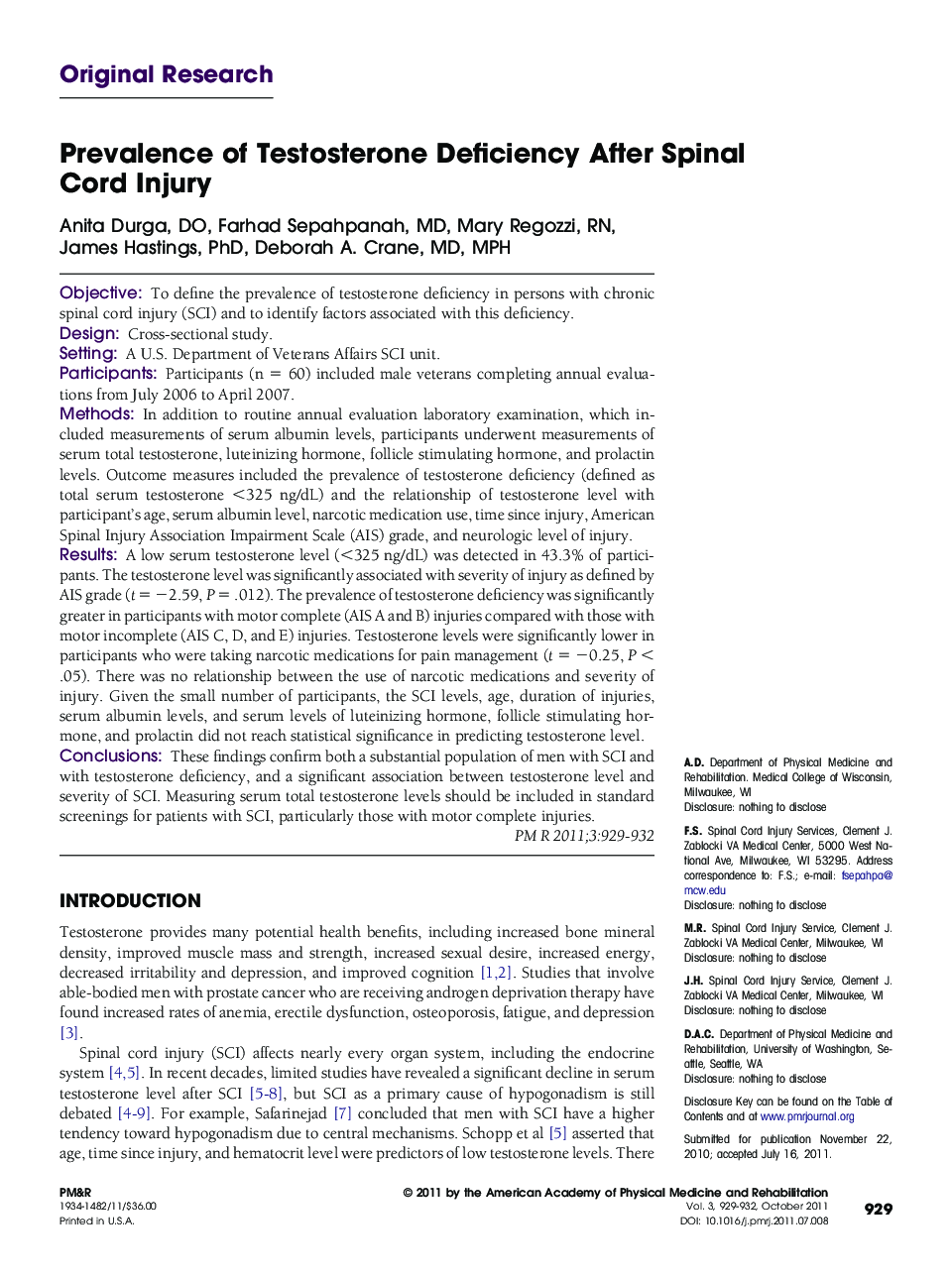| Article ID | Journal | Published Year | Pages | File Type |
|---|---|---|---|---|
| 2705938 | PM&R | 2011 | 4 Pages |
ObjectiveTo define the prevalence of testosterone deficiency in persons with chronic spinal cord injury (SCI) and to identify factors associated with this deficiency.DesignCross-sectional study.SettingA U.S. Department of Veterans Affairs SCI unit.ParticipantsParticipants (n = 60) included male veterans completing annual evaluations from July 2006 to April 2007.MethodsIn addition to routine annual evaluation laboratory examination, which included measurements of serum albumin levels, participants underwent measurements of serum total testosterone, luteinizing hormone, follicle stimulating hormone, and prolactin levels. Outcome measures included the prevalence of testosterone deficiency (defined as total serum testosterone <325 ng/dL) and the relationship of testosterone level with participant's age, serum albumin level, narcotic medication use, time since injury, American Spinal Injury Association Impairment Scale (AIS) grade, and neurologic level of injury.ResultsA low serum testosterone level (<325 ng/dL) was detected in 43.3% of participants. The testosterone level was significantly associated with severity of injury as defined by AIS grade (t = −2.59, P = .012). The prevalence of testosterone deficiency was significantly greater in participants with motor complete (AIS A and B) injuries compared with those with motor incomplete (AIS C, D, and E) injuries. Testosterone levels were significantly lower in participants who were taking narcotic medications for pain management (t = −0.25, P < .05). There was no relationship between the use of narcotic medications and severity of injury. Given the small number of participants, the SCI levels, age, duration of injuries, serum albumin levels, and serum levels of luteinizing hormone, follicle stimulating hormone, and prolactin did not reach statistical significance in predicting testosterone level.ConclusionsThese findings confirm both a substantial population of men with SCI and with testosterone deficiency, and a significant association between testosterone level and severity of SCI. Measuring serum total testosterone levels should be included in standard screenings for patients with SCI, particularly those with motor complete injuries.
